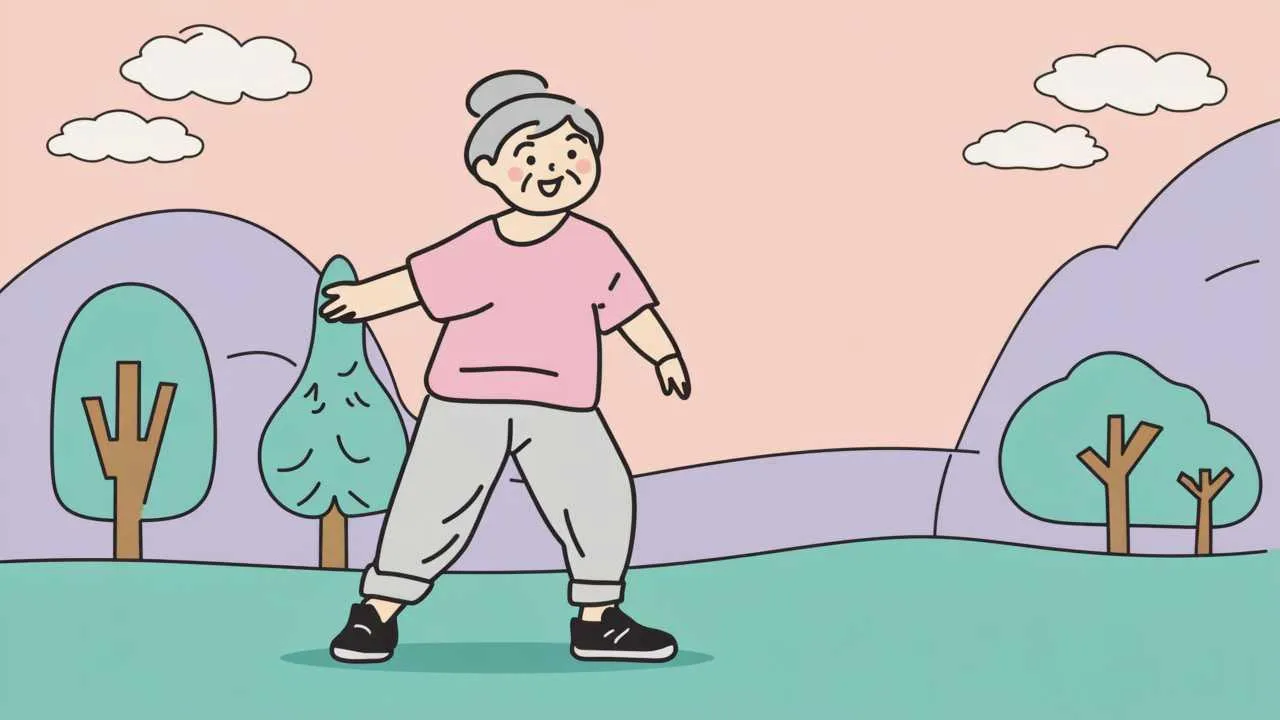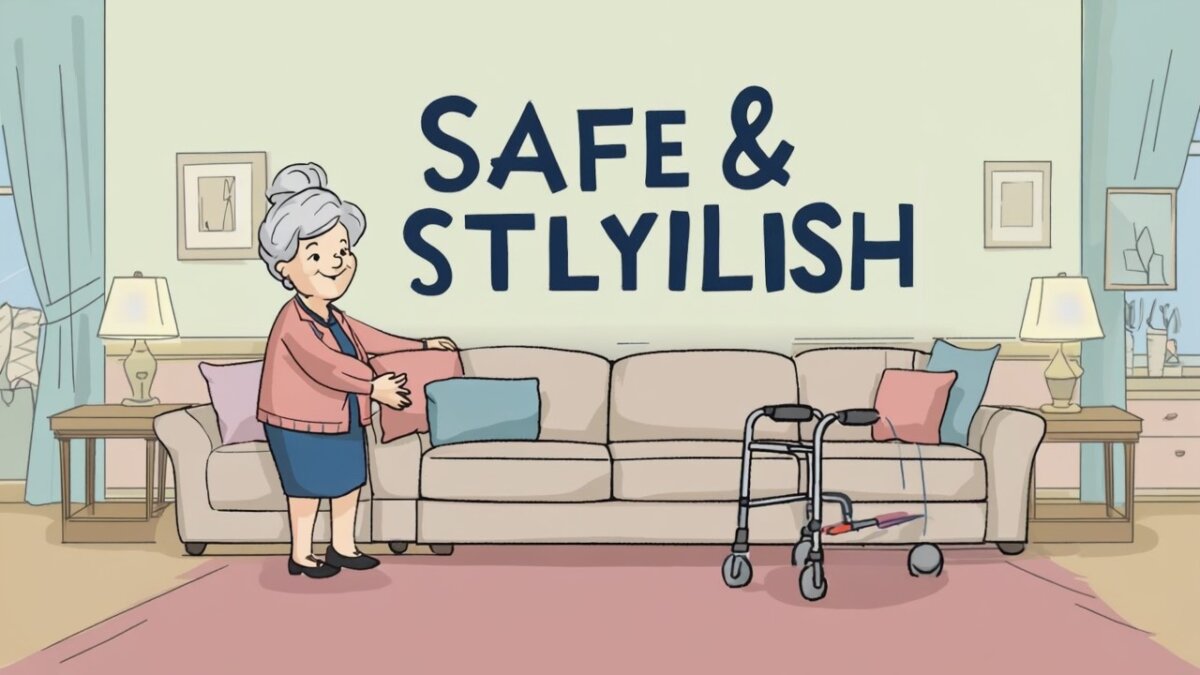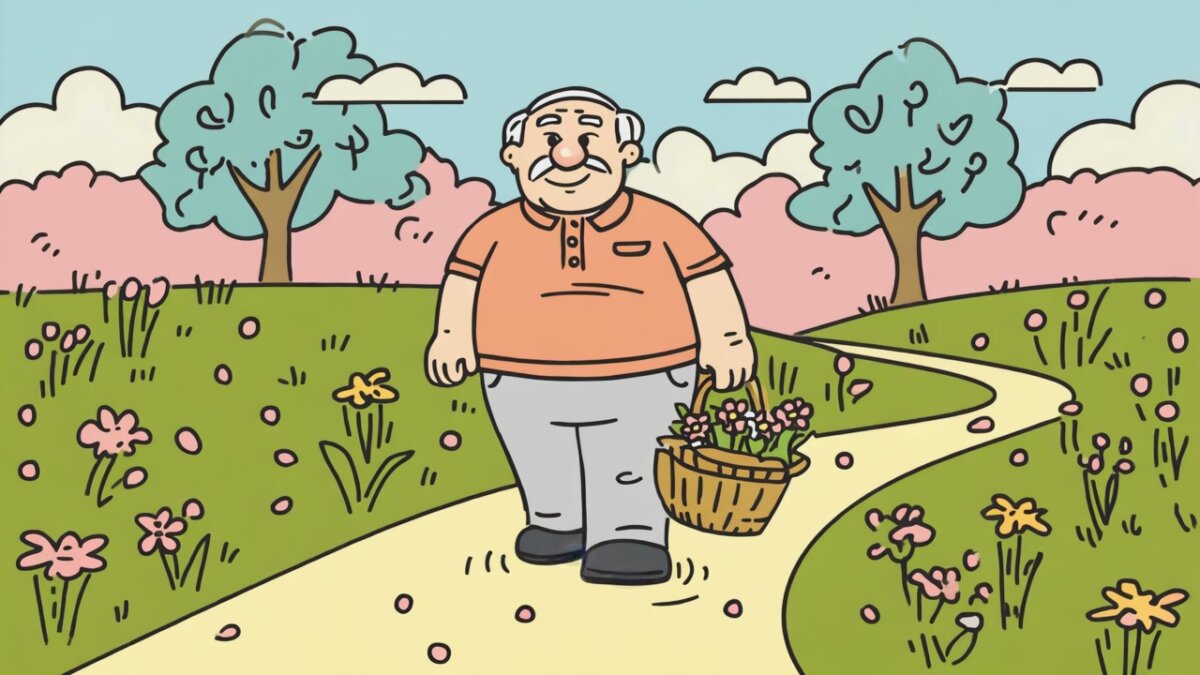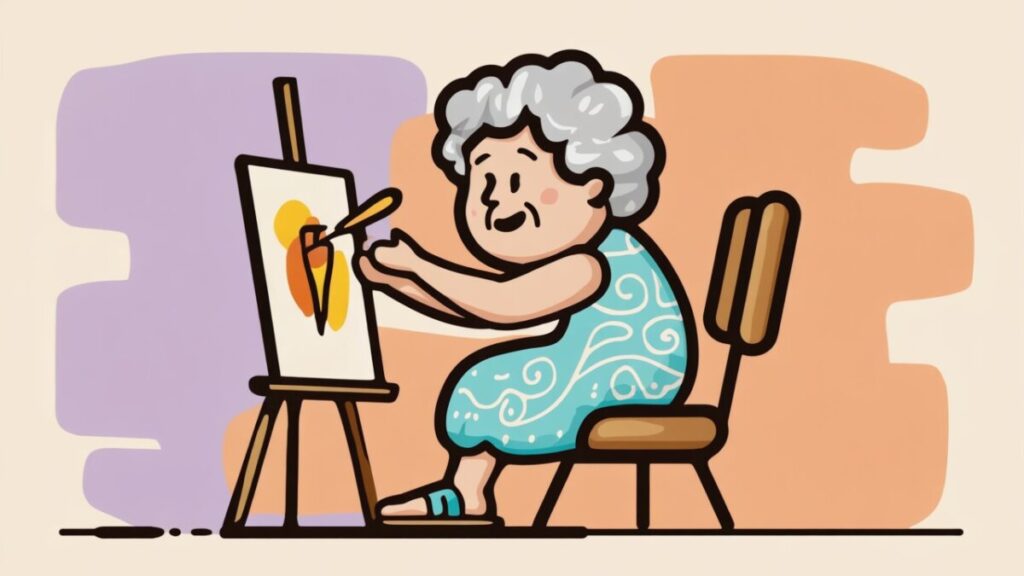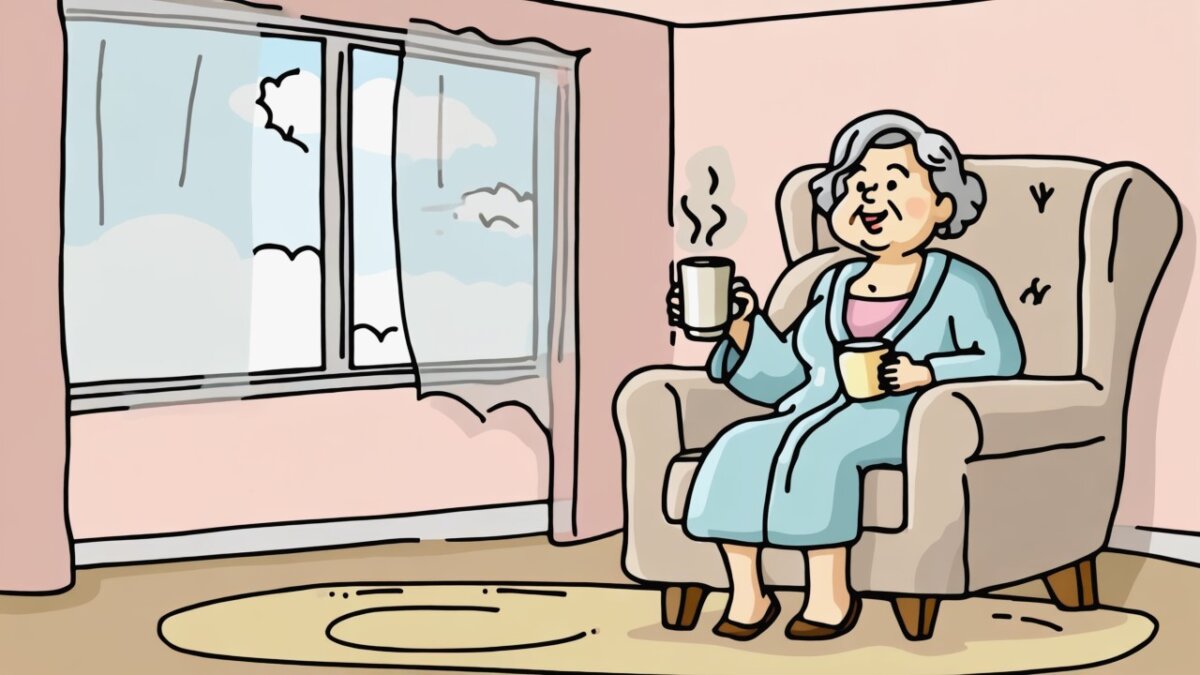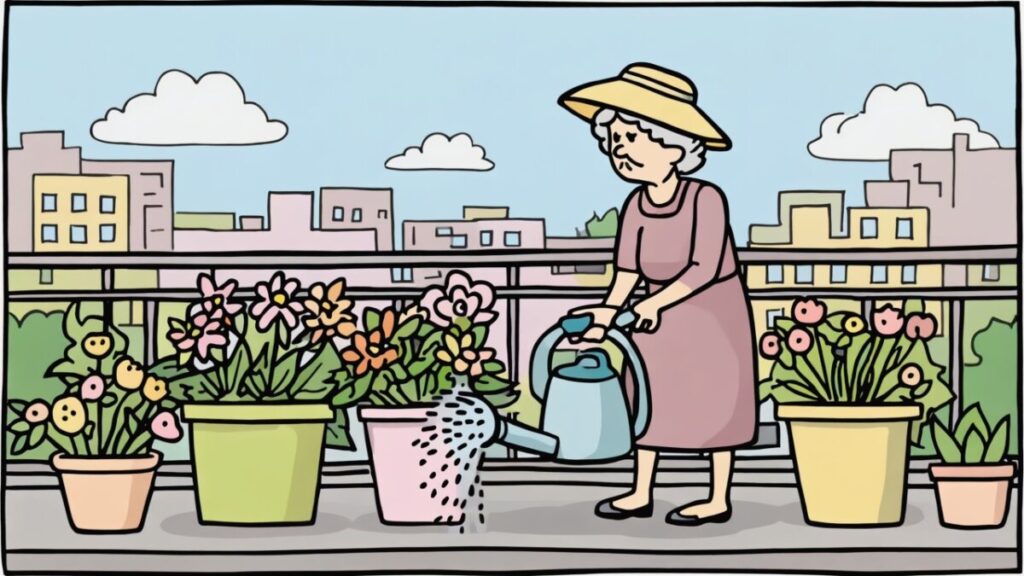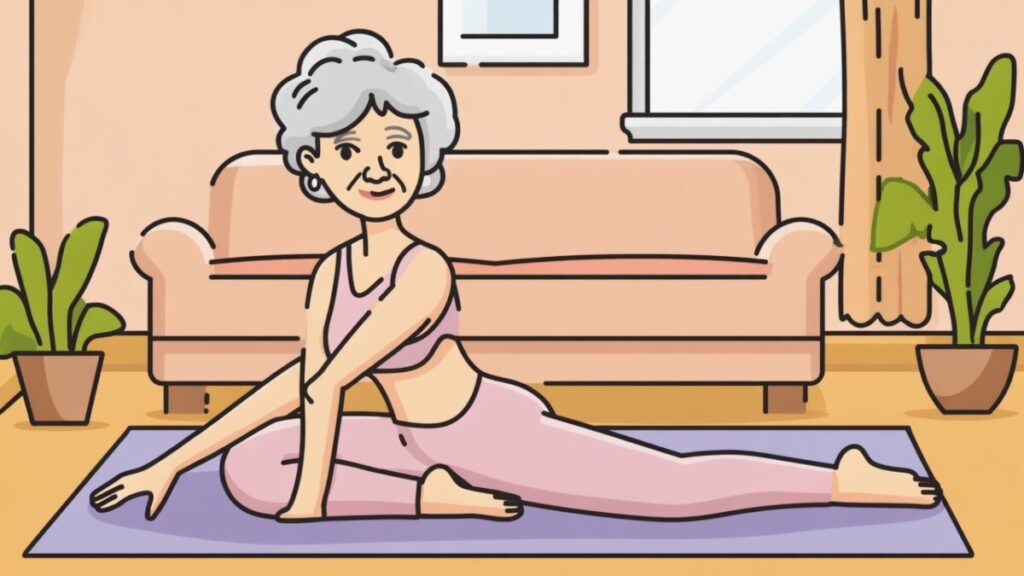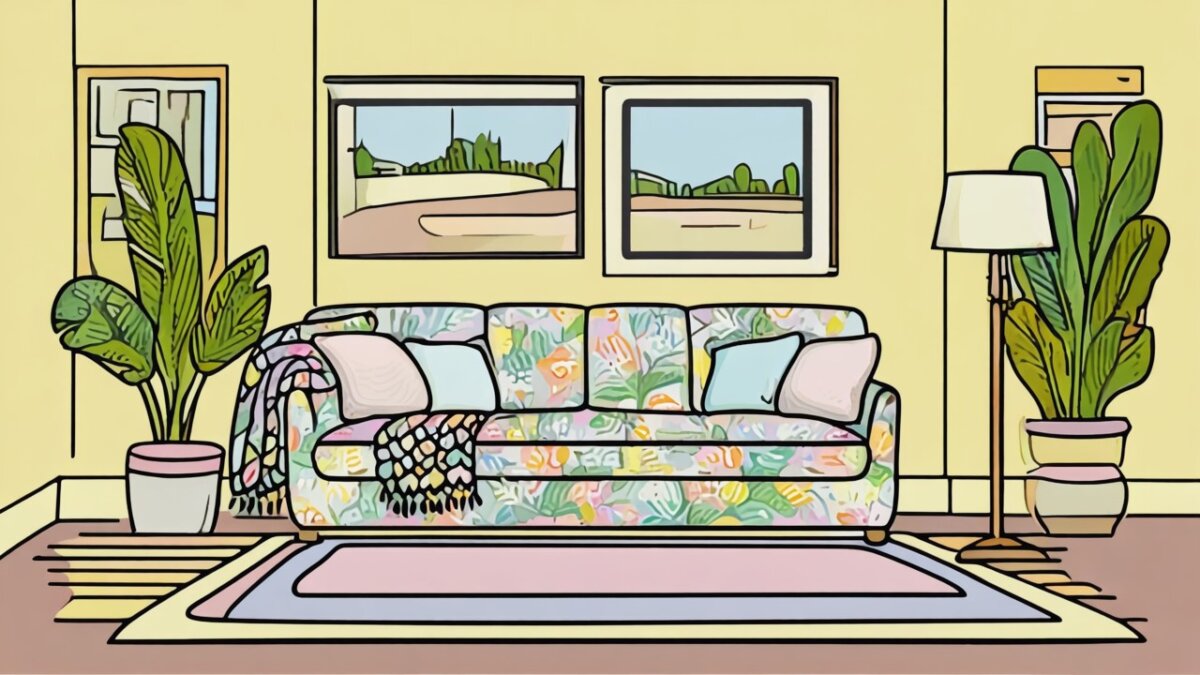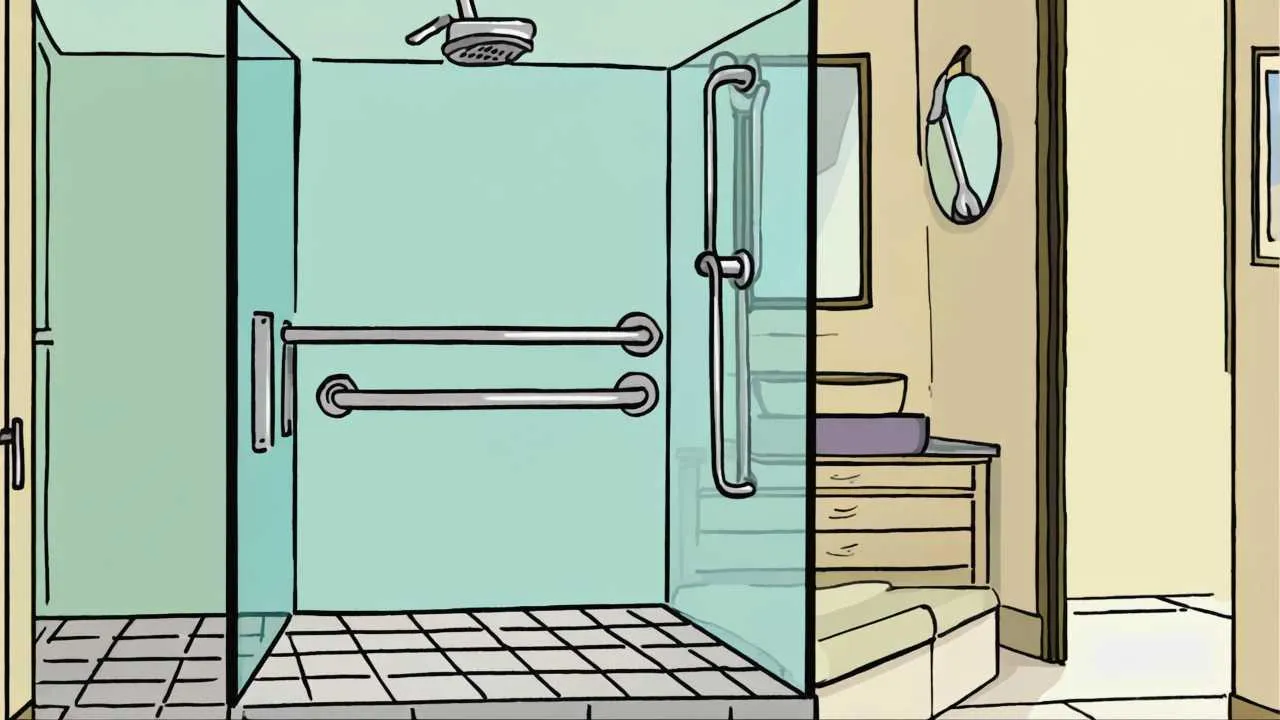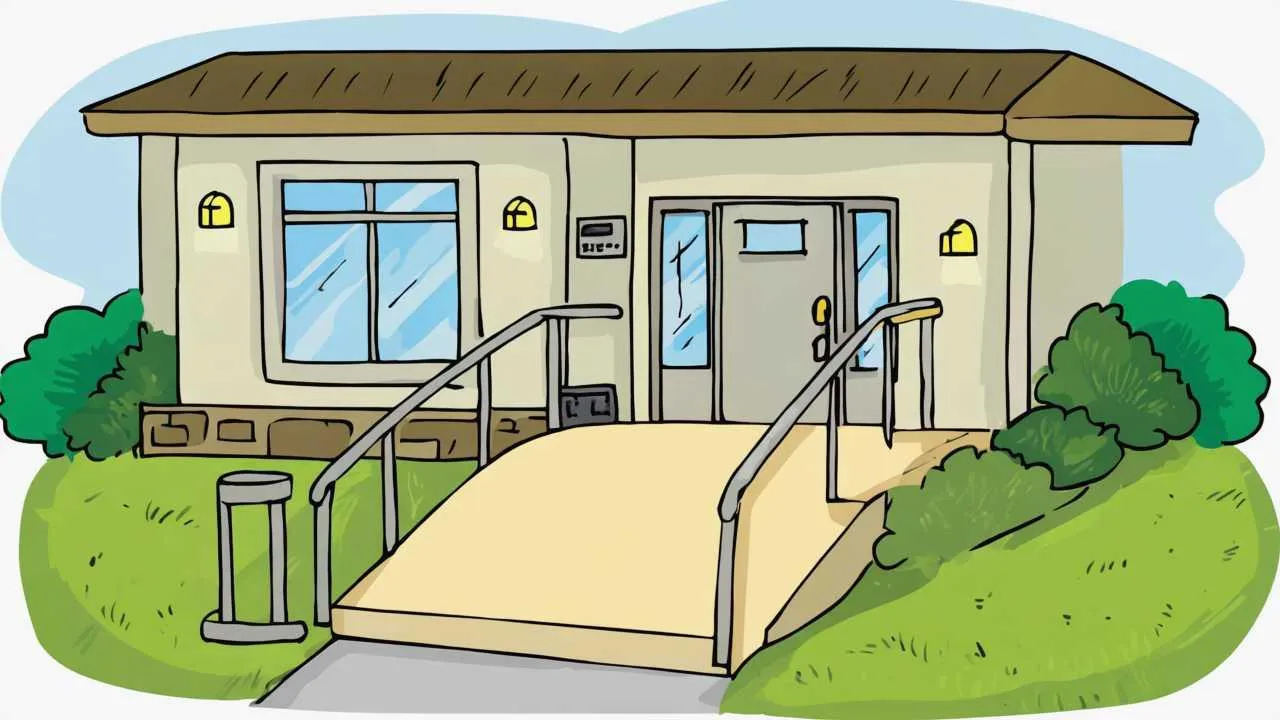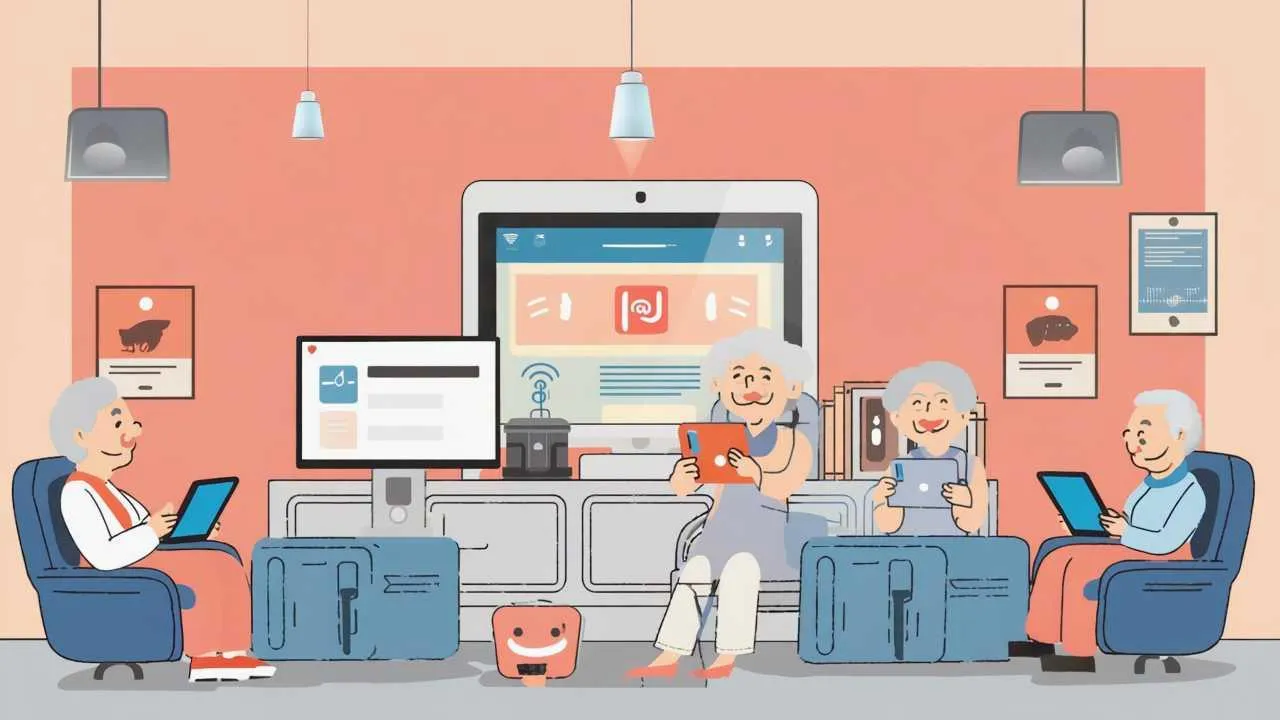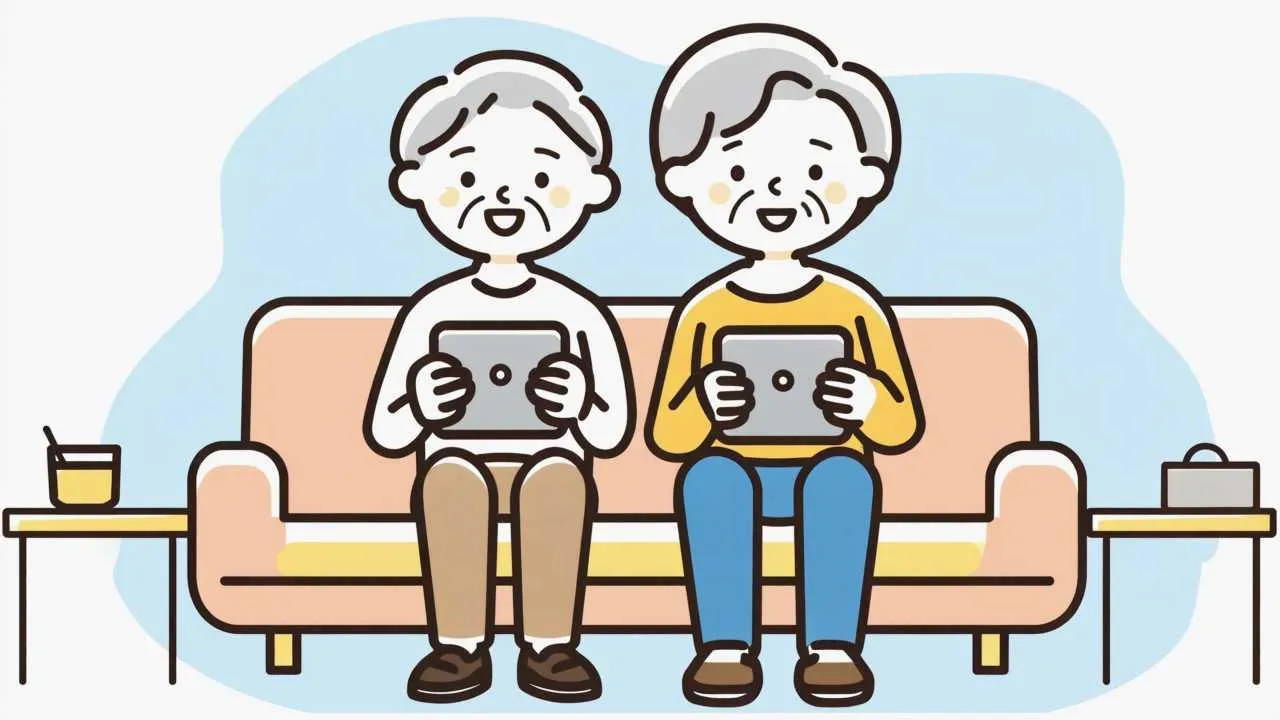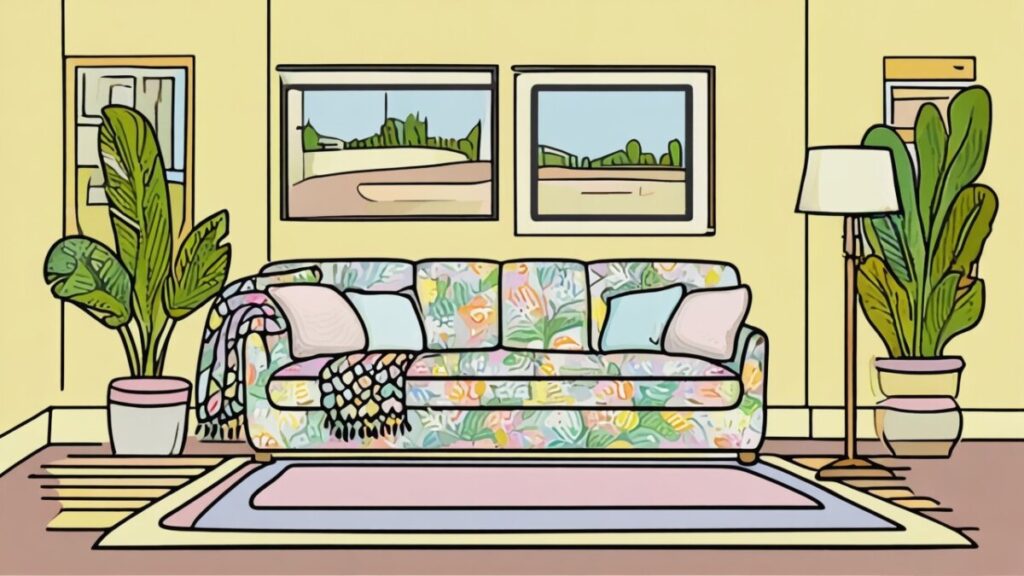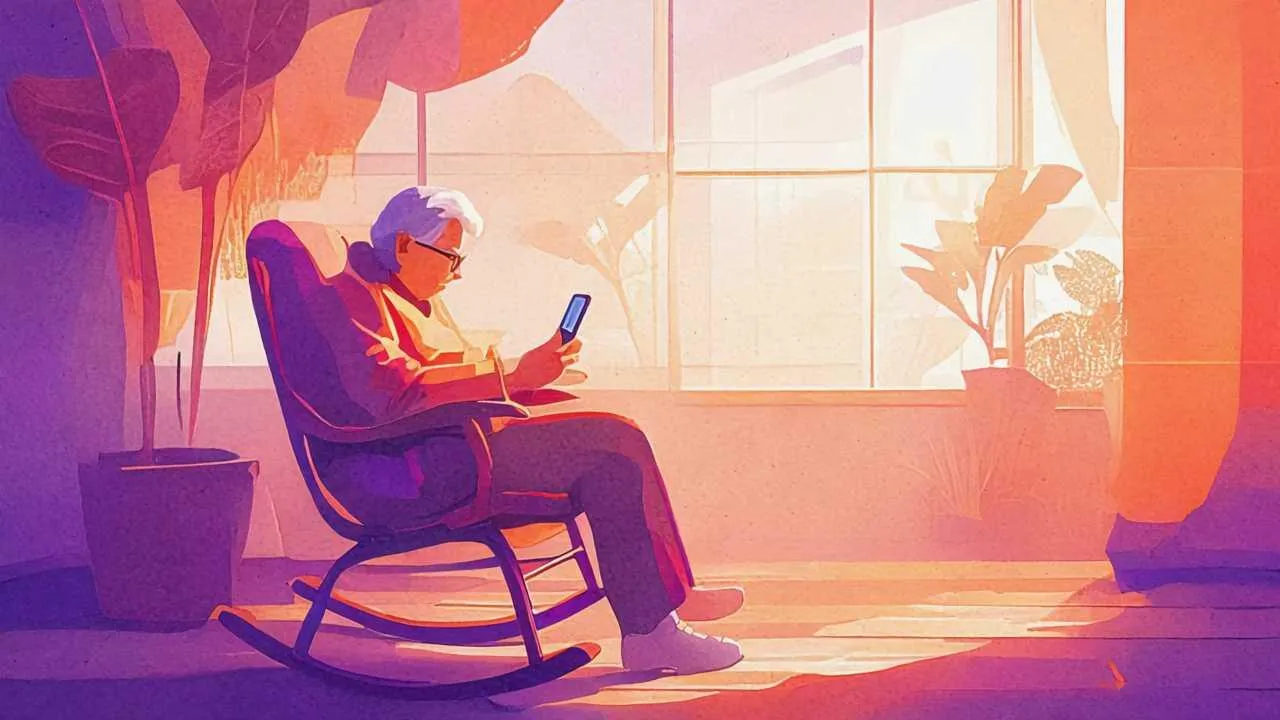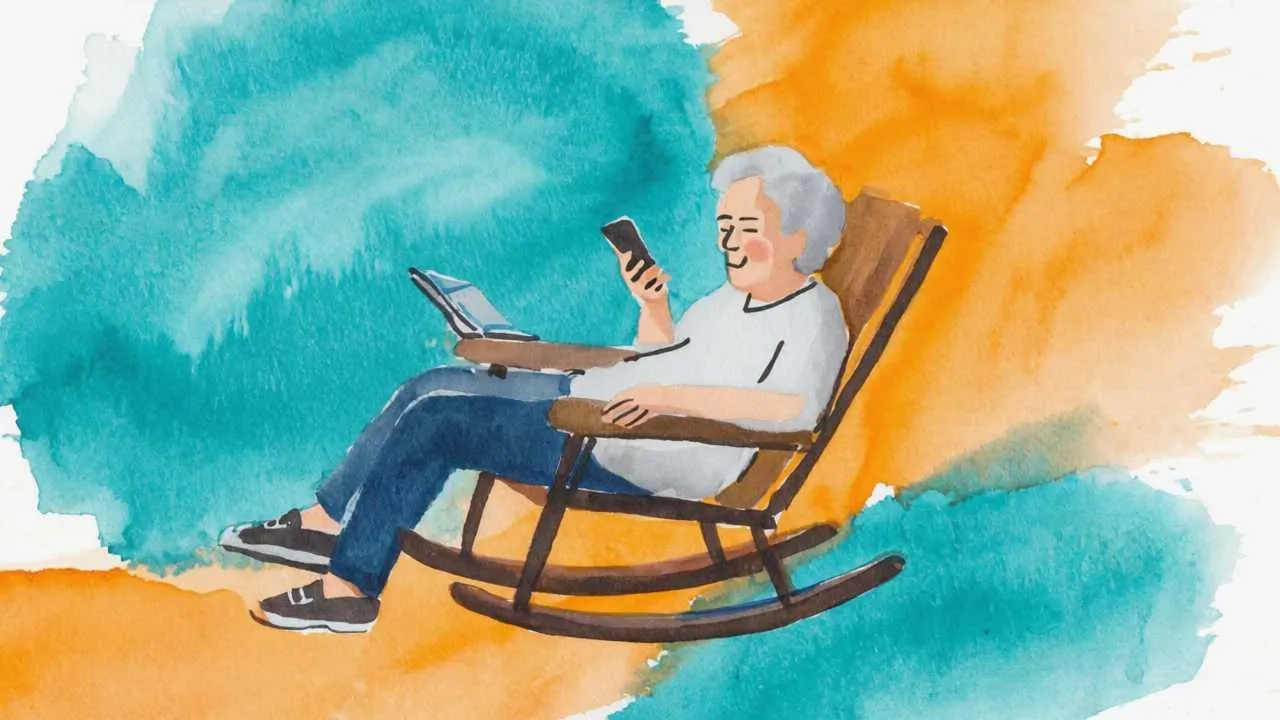
Visual Art by Artani Paris | Pioneer in Luxury Brand Art since 2002
Maintaining mobility after 60 directly impacts your independence, health, and quality of life. While aging naturally affects flexibility, balance, and strength, regular gentle exercise significantly slows this decline and often reverses limitations you might have already developed. The key word here is “gentle”—you don’t need intense workouts or gym memberships to stay mobile and active. Research from the National Institute on Aging shows that adults over 60 who engage in regular low-impact exercise maintain better balance, experience fewer falls, and enjoy greater independence than sedentary peers. This comprehensive guide presents safe, effective exercises specifically designed for seniors aged 60-85, whether you’re currently active or just beginning your fitness journey. You’ll discover movements that improve flexibility, strengthen muscles that support daily activities, enhance balance to prevent falls, and increase endurance without joint stress or injury risk.
Why Mobility Matters More After 60
Mobility encompasses your ability to move freely and independently: walking, climbing stairs, getting in and out of chairs, reaching for items, and performing daily tasks without assistance. After 60, several age-related changes affect mobility. Muscle mass naturally decreases by 3-8% per decade after age 30, accelerating after 60. This condition, called sarcopenia, reduces strength needed for basic movements. Joint flexibility diminishes as cartilage thins and connective tissues lose elasticity. Balance deteriorates as sensory systems that control equilibrium decline with age.
The consequences of reduced mobility extend beyond physical limitations. Limited mobility increases fall risk—one in four Americans aged 65 and older falls each year, according to the CDC. Falls lead to serious injuries including hip fractures, which often result in permanent disability or loss of independence. Reduced mobility also correlates with social isolation, depression, and accelerated cognitive decline. People who can’t move easily tend to avoid social activities, leading to loneliness and mental health challenges.
The encouraging news? Regular gentle exercise prevents and often reverses mobility decline. A 2024 study published in the Journal of the American Geriatrics Society found that seniors who exercised just 30 minutes daily, five days per week, maintained mobility comparable to people 10-15 years younger. Exercise strengthens muscles, improves balance, enhances flexibility, increases bone density, and boosts cardiovascular health. Perhaps most importantly, maintaining mobility preserves independence—the ability to live in your own home, drive, shop, and enjoy activities without relying on others.
| Mobility Component | Age-Related Change | Exercise Benefit | Timeline for Improvement |
|---|---|---|---|
| Muscle Strength | 3-8% loss per decade after 30 | Resistance training rebuilds muscle | 4-8 weeks |
| Flexibility | 10% reduction by age 70 | Stretching restores range of motion | 2-6 weeks |
| Balance | Sensory decline after 60 | Balance exercises improve stability | 3-8 weeks |
| Endurance | VO2 max decreases 10% per decade | Aerobic activity increases stamina | 6-12 weeks |
| Bone Density | 1-2% annual loss after menopause | Weight-bearing exercise strengthens bones | 6-12 months |
| Joint Health | Cartilage thinning, stiffness | Movement lubricates joints, reduces pain | 2-4 weeks |
Safe Exercise Principles for Seniors
Before beginning any exercise program, consult your healthcare provider, especially if you have chronic conditions like heart disease, diabetes, arthritis, or osteoporosis. Your doctor can provide personalized guidance on exercise intensity and movements to avoid based on your specific health status. This consultation is not just a formality—it’s an important safety measure that helps you exercise confidently.
Start slowly and progress gradually. If you’ve been sedentary, begin with just 5-10 minutes of gentle activity daily. Add 2-3 minutes each week until you reach 30 minutes. This gradual approach allows your body to adapt without injury. Remember that “gentle” means you should be able to hold a conversation while exercising. If you’re too breathless to talk, you’re working too hard and need to reduce intensity.
Listen to your body and distinguish between normal exercise discomfort and warning signs. Mild muscle soreness 12-48 hours after exercise is normal and indicates your muscles are adapting and strengthening. Sharp pain, chest pain, severe shortness of breath, dizziness, or joint swelling are warning signs—stop immediately and consult your doctor. Never push through these symptoms.
Proper form matters more than repetitions or duration. One properly executed movement benefits you more than ten incorrect ones and reduces injury risk. If you’re unsure about proper form, consider working with a physical therapist or certified senior fitness instructor for a few sessions to learn correct technique. Many senior centers offer free or low-cost fitness classes with instructors trained in senior exercise safety.
Stay hydrated before, during, and after exercise. Seniors often have diminished thirst sensation, so drink water on a schedule rather than waiting until you feel thirsty. Aim for 6-8 ounces before exercise and another 6-8 ounces afterward. Avoid exercising in extreme heat or cold, which stress your cardiovascular system more significantly after 60.
Wear appropriate footwear with good support and traction to prevent slips and falls. Athletic shoes designed for walking or cross-training provide stability and cushioning. Replace worn shoes every 300-500 miles of use or every 6-12 months. Exercise in well-lit areas free of tripping hazards. Keep your exercise space clutter-free and use stable furniture for balance support when needed.
Daily Flexibility and Stretching Routine
Flexibility exercises improve range of motion, reduce stiffness, prevent injury, and make daily activities easier. Perform these stretches daily, ideally after your muscles are warm from light activity or a warm shower. Hold each stretch for 20-30 seconds without bouncing. You should feel gentle tension, never pain. Breathe deeply and naturally throughout each stretch—never hold your breath.
Neck Stretches: Sit or stand with good posture. Slowly tilt your head to the right, bringing your right ear toward your right shoulder. Hold 20 seconds, then repeat on the left side. Next, gently turn your head to look over your right shoulder, hold 20 seconds, then turn left. Finally, slowly drop your chin toward your chest and hold 20 seconds. These stretches relieve neck tension and improve range of motion for driving and daily activities. Perform 2-3 times daily, especially if you experience neck stiffness.
Shoulder Rolls and Reaches: Roll your shoulders backward in large circles 10 times, then forward 10 times. This releases shoulder tension and improves posture. For shoulder reaches, clasp your hands behind your back and gently lift your arms, opening your chest. Hold 20 seconds. Then reach one arm overhead and bend your elbow, using your other hand to gently pull the elbow for a tricep stretch. Hold 20 seconds each arm. These movements maintain shoulder flexibility for reaching overhead cabinets and dressing.
Seated Spinal Twist: Sit in a sturdy chair with feet flat on the floor. Place your right hand on the outside of your left thigh and your left hand on the chair back. Gently twist your torso to the left, looking over your left shoulder. Hold 20-30 seconds, breathing deeply. Return to center and repeat on the right side. This stretch improves spinal mobility and reduces back stiffness. Perform 2-3 times daily, especially after prolonged sitting.
Hip Flexor Stretch: Stand near a wall or sturdy chair for support. Step your right foot back into a lunge position, keeping your left knee over your ankle. Gently press your hips forward until you feel a stretch in the front of your right hip. Hold 20-30 seconds, then switch sides. Tight hip flexors result from prolonged sitting and contribute to lower back pain and walking difficulties. This stretch counteracts these effects.
Hamstring Stretch: Sit on the edge of a sturdy chair with your right leg extended straight in front of you, heel on the ground, toes pointing up. Keep your left foot flat on the floor. Keeping your back straight, lean forward from your hips until you feel a gentle stretch in the back of your right thigh. Hold 20-30 seconds, then switch legs. Flexible hamstrings prevent lower back pain and improve walking stride. Perform daily, especially if you experience difficulty touching your toes or bending forward.
Calf Stretch: Stand facing a wall with hands on the wall at shoulder height. Step your right foot back, keeping it straight and heel on the ground. Bend your left knee and lean toward the wall until you feel a stretch in your right calf. Hold 20-30 seconds, then switch legs. Tight calves limit ankle mobility and increase fall risk. This stretch is especially important if you experience leg cramps at night or difficulty walking uphill.
Ankle Circles: Sit in a chair and lift your right foot slightly off the ground. Slowly rotate your ankle, drawing large circles with your toes—10 circles clockwise, then 10 counterclockwise. Repeat with the left foot. This simple movement maintains ankle flexibility for balance and prevents stiffness. Perform 2-3 times daily, especially in the morning if you experience ankle stiffness.
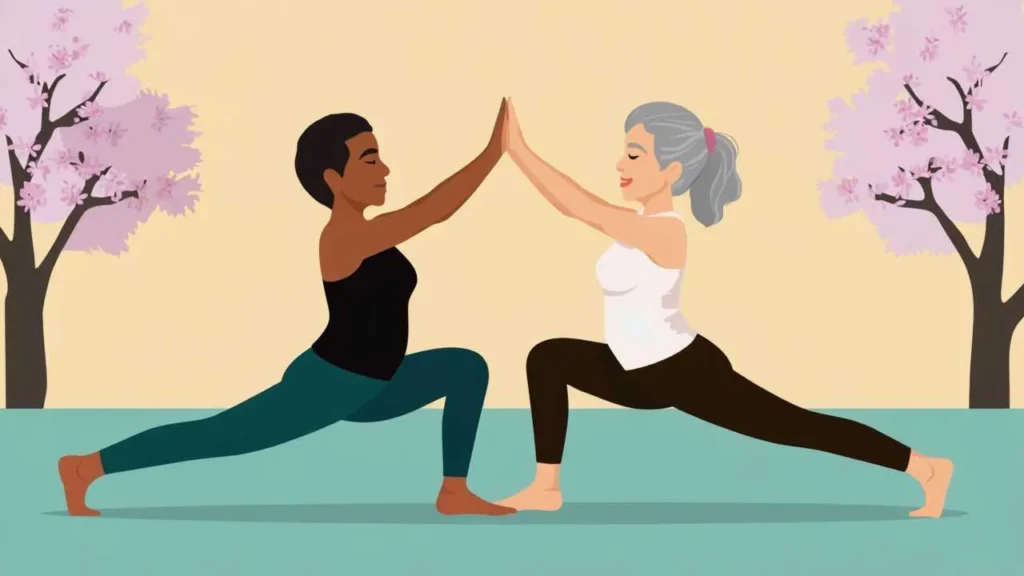

Visual Art by Artani Paris
Strength-Building Exercises for Daily Activities
Strength training doesn’t require heavy weights or gym equipment. Using your body weight and simple household items builds functional strength for daily tasks like carrying groceries, climbing stairs, and getting up from chairs. Perform these exercises 2-3 times per week with at least one rest day between sessions to allow muscle recovery. Start with one set of 8-10 repetitions and gradually progress to two sets of 12-15 repetitions as you get stronger.
Chair Squats: Stand in front of a sturdy chair with feet hip-width apart. Keeping your weight in your heels and your back straight, slowly bend your knees to lower yourself toward the chair. Lightly touch the chair seat, then push through your heels to stand back up. This exercise strengthens quadriceps, glutes, and core muscles essential for sitting and standing. Start with 8 repetitions and progress to 15. Once this becomes easy, eliminate the chair touch and perform free-standing squats.
Wall Push-Ups: Stand arm’s length from a wall with feet hip-width apart. Place your palms on the wall at shoulder height and width. Keeping your body straight, bend your elbows to bring your chest toward the wall, then push back to starting position. This modified push-up strengthens chest, shoulders, and arms without floor push-up difficulty. It builds strength for pushing heavy doors and moving furniture. Perform 10-15 repetitions. As you get stronger, step farther from the wall to increase difficulty.
Heel Raises: Stand behind a sturdy chair, holding the back for balance. Rise up onto your toes, lifting your heels as high as comfortable. Hold for 2 seconds, then slowly lower back down. This exercise strengthens calves and improves balance for walking and climbing stairs. Perform 10-15 repetitions. Progress by holding the raised position longer (up to 5 seconds) or eventually performing the exercise on one leg at a time for increased challenge.
Seated Marching: Sit tall in a sturdy chair with feet flat on the floor. Lift your right knee as high as comfortable, lower it, then lift your left knee. Continue alternating legs for 20-30 repetitions (10-15 per leg). This exercise strengthens hip flexors and improves coordination for walking. Add ankle weights (1-2 pounds) as you progress for additional resistance.
Arm Raises with Light Weights: Sit or stand holding light weights (1-3 pounds each) or canned goods. Start with arms at your sides. Raise both arms forward to shoulder height, hold 2 seconds, then lower slowly. Next, raise arms out to the sides to shoulder height, hold 2 seconds, lower slowly. Finally, bend elbows and lift weights overhead in a shoulder press, hold 2 seconds, lower slowly. Perform 10 repetitions of each movement. This strengthens shoulders and arms for reaching, lifting, and carrying objects overhead.
Bicep Curls: Sit or stand holding light weights with arms at your sides, palms facing forward. Keeping elbows close to your body, bend elbows to curl weights toward shoulders. Hold 2 seconds, then slowly lower. Perform 10-15 repetitions. Strong biceps help with carrying groceries, lifting grandchildren, and pulling open heavy doors. Progress by increasing weight in small increments (1-2 pounds) as the current weight becomes too easy.
Core Bracing: Sit tall in a chair or stand with good posture. Take a deep breath, then as you exhale, tighten your abdominal muscles as if preparing for someone to poke your stomach. Hold this contraction for 5-10 seconds while breathing normally, then relax. Repeat 10 times. A strong core stabilizes your spine, improves posture, and prevents back pain. This exercise can be performed anywhere, anytime—while watching TV, waiting in line, or sitting at traffic lights.
| Exercise | Primary Muscles | Daily Life Benefit | Starting Reps | Goal Reps |
|---|---|---|---|---|
| Chair Squats | Quadriceps, glutes, core | Sitting, standing, climbing stairs | 8 | 15 |
| Wall Push-Ups | Chest, shoulders, triceps | Pushing doors, moving furniture | 10 | 15 |
| Heel Raises | Calves, ankle stabilizers | Walking, balance, climbing | 10 | 15 |
| Seated Marching | Hip flexors, core | Walking, climbing stairs | 20 (10 each) | 30 (15 each) |
| Arm Raises | Shoulders, upper back | Reaching overhead, lifting | 10 | 15 |
| Bicep Curls | Biceps, forearms | Carrying groceries, lifting objects | 10 | 15 |
| Core Bracing | Abdominals, obliques | Posture, back support, stability | 10 holds | 15 holds |
Balance Exercises to Prevent Falls
Balance training reduces fall risk by improving stability, coordination, and proprioception (your body’s sense of position in space). The CDC reports that improving balance through exercise reduces fall risk by up to 23%. Perform these exercises daily, always near a sturdy chair or counter for support if needed. Progress from using support to performing exercises without support as your balance improves.
Single-Leg Stance: Stand behind a sturdy chair, lightly holding the back for support. Lift your right foot off the ground, balancing on your left leg. Hold this position for 10 seconds, then switch legs. As you improve, increase hold time to 30 seconds per leg. Eventually practice with eyes closed (while still near support) for added challenge. This fundamental balance exercise directly translates to stability while walking, dressing, and showering.
Heel-to-Toe Walk: Stand near a wall for support if needed. Place your right foot directly in front of your left foot, with the right heel touching the left toes. Move your left foot in front, touching heel to toe. Continue walking in a straight line for 20 steps. This “tandem walking” improves dynamic balance needed for navigating crowded spaces and uneven surfaces. Walk forward and backward to challenge different balance systems.
Weight Shifts: Stand with feet hip-width apart near a support. Shift your weight onto your right foot, lifting your left foot slightly off the ground. Hold 5 seconds, then shift weight to your left foot. Repeat 10 times per side. Progress by shifting weight while swinging the lifted leg forward and backward or side to side. This exercise trains your body to maintain balance when weight distribution changes, which happens constantly during walking.
Clock Reaches: Stand on your left leg near a chair for support, with your right leg slightly lifted. Imagine standing in the center of a clock face. Reach your right leg forward (12 o’clock), hold 2 seconds, return to center. Reach to the side (3 o’clock), hold, return. Reach backward (6 o’clock), hold, return. Perform 5 complete clock rotations on each leg. This multi-directional balance challenge prepares you for real-world situations requiring balance in various positions.
Sit-to-Stand with Pause: Sit in a sturdy chair. Stand up slowly, pause and hold the standing position for 3-5 seconds without support (arms folded across chest), then slowly sit back down. The pause at the top challenges your balance during a transitional movement that causes many falls. Perform 8-10 repetitions. This functional exercise directly improves safety when getting up from chairs, toilets, and car seats.
Grapevine Steps: Stand with feet together. Step your right foot to the right, then cross your left foot behind the right. Step right again, then cross left foot in front of the right. Continue this pattern moving to the right for 10 steps, then reverse direction moving left. This lateral movement pattern improves balance and coordination in side-to-side motions, which are often neglected but important for fall prevention.
Head Turns While Standing: Stand with feet hip-width apart near support. While maintaining balance, turn your head slowly to the right, return to center, then turn left. Perform 10 repetitions. The balance challenge increases when visual input changes, making this exercise crucial for maintaining stability while looking around—scanning for traffic, searching for items, or conversing while walking.
Low-Impact Aerobic Activities
Aerobic exercise strengthens your heart, improves lung capacity, increases endurance, boosts mood, and helps maintain healthy weight. The American Heart Association recommends at least 150 minutes of moderate aerobic activity weekly for seniors—that’s just 30 minutes, five days per week. Low-impact options protect joints while delivering cardiovascular benefits. Choose activities you enjoy, as enjoyment ensures consistency.
Walking: Walking remains the most accessible and beneficial exercise for seniors. It requires no equipment beyond comfortable shoes, can be done anywhere, and adapts to any fitness level. Start with 10-minute walks and gradually increase duration and pace. Walking outdoors provides additional benefits: fresh air, vitamin D from sunshine, and mental health improvements from nature exposure. Mall walking offers climate-controlled options during extreme weather. Track your steps with a pedometer or smartphone—aim for 7,000-10,000 daily steps for optimal health benefits.
Water Aerobics: Exercising in water eliminates joint stress while providing natural resistance that builds strength. Water buoyancy supports your body weight, making movement comfortable even if you have arthritis or chronic pain. Most YMCAs and community pools offer senior water aerobics classes. The social aspect enhances mental health and accountability. Water temperature should be 83-88°F for comfort. Even if you’re not a strong swimmer, water aerobics typically occurs in shallow water where you can stand.
Stationary Cycling: Cycling provides excellent cardiovascular exercise without impact stress. Recumbent bikes with back support offer additional comfort for those with balance concerns or back problems. Start with 10 minutes at low resistance and gradually increase duration to 30 minutes. Cycling strengthens legs without stressing knees. Many seniors enjoy watching TV or reading while cycling, making it an efficient use of time. Outdoor cycling on flat, safe paths provides similar benefits with added scenery.
Chair Dancing: Dancing while seated eliminates fall risk while providing aerobic benefits and fun. Follow along with chair dancing videos online or simply move to your favorite music. Include arm movements, leg lifts, torso twists, and marching in place. The rhythmic movement improves coordination and balance while elevating heart rate. Chair dancing works especially well for people with limited mobility or balance concerns. Sessions of 15-20 minutes provide cardiovascular benefits and mood enhancement.
Tai Chi: This ancient Chinese practice combines slow, flowing movements with deep breathing and meditation. Studies show Tai Chi improves balance, reduces fall risk by up to 45%, and decreases anxiety and depression. Classes specifically for seniors are widely available through senior centers, community colleges, and parks departments. Tai Chi requires no special equipment and can be practiced anywhere. The gentle, low-impact nature makes it ideal for seniors of all fitness levels, including those with arthritis or chronic conditions.
Marching in Place: When weather or circumstances prevent other aerobic activities, march in place at home. Lift knees as high as comfortable and swing arms naturally. Continue for 10-20 minutes, taking breaks as needed. Increase intensity by lifting knees higher or marching faster. This simple activity provides cardiovascular benefits without requiring any equipment or leaving home. March during TV commercials to accumulate activity throughout the day.
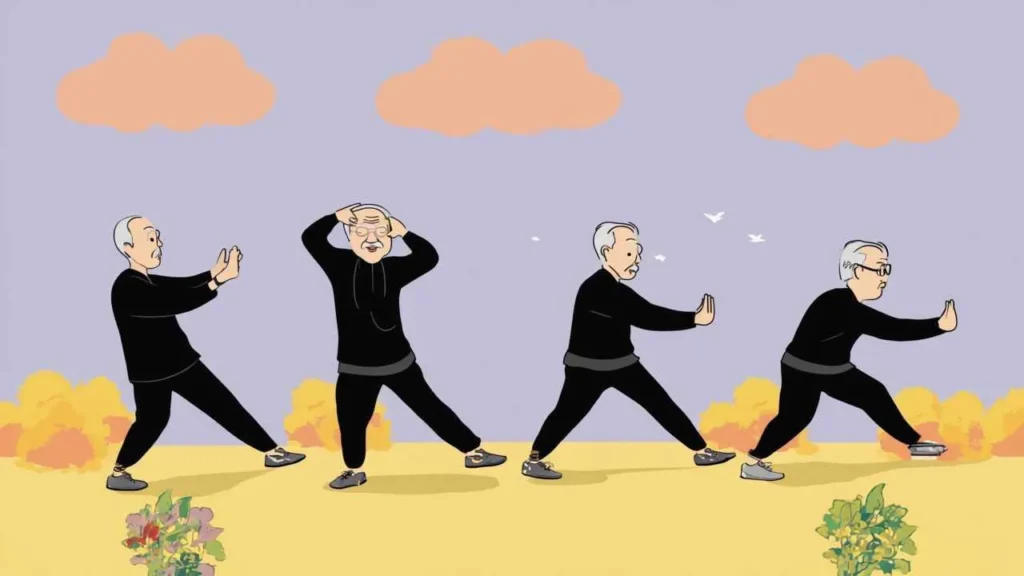

Visual Art by Artani Paris
Creating Your Personal Exercise Schedule
Consistency matters more than intensity for long-term mobility benefits. A well-designed weekly schedule balances different exercise types while allowing adequate recovery. Here’s a proven approach that incorporates flexibility, strength, balance, and aerobic activities throughout the week. Modify this template based on your current fitness level, health conditions, and schedule.
Weekly Exercise Template: Monday – Strength training (20 minutes) plus flexibility stretches (10 minutes). Tuesday – Aerobic activity like walking or cycling (30 minutes). Wednesday – Balance exercises (15 minutes) plus flexibility stretches (10 minutes). Thursday – Strength training (20 minutes) plus flexibility stretches (10 minutes). Friday – Aerobic activity (30 minutes). Saturday – Balance exercises (15 minutes), light aerobic activity like leisurely walking (20 minutes), flexibility stretches (10 minutes). Sunday – Active rest day with gentle stretching only (15 minutes) or complete rest.
Schedule exercise at the same time daily to establish a habit. Many seniors prefer morning exercise when energy levels are highest and before the day’s obligations interfere. However, afternoon or evening exercise works equally well if that fits your preference and schedule. What matters most is consistency. Research shows it takes 66 days on average to form a new habit, so commit to your schedule for at least 10 weeks before evaluating results.
Track your progress to stay motivated. Use a simple calendar to check off completed exercise sessions. Note how you feel after each workout—energy levels, mood, any discomfort. Many seniors are surprised how quickly they notice improvements: less morning stiffness, easier stair climbing, better balance, improved mood. Tracking makes these improvements visible and encourages continued effort.
Build accountability into your routine. Exercise with a friend or spouse, join a senior fitness class, or tell family members about your exercise goals. Social accountability significantly increases adherence to exercise programs. Many communities have walking groups, mall walking clubs, or senior fitness classes that provide both social interaction and built-in accountability. The friendship and camaraderie make exercise enjoyable rather than a chore.
Prepare for obstacles that might derail your routine. Bad weather? Have an indoor backup plan like chair exercises or marching in place. Feeling unmotivated? Commit to just 5 minutes—often starting is the hardest part, and once moving you’ll likely continue. Experiencing minor aches? Gentle movement often relieves minor stiffness better than rest. Traveling? Pack resistance bands and continue exercises in your hotel room. Planning ahead for common obstacles prevents them from becoming excuses.
Celebrate milestones and progress. When you complete one month of consistent exercise, reward yourself with a new pair of walking shoes or workout clothes. When you notice you can climb stairs without breathlessness, acknowledge this achievement. These celebrations reinforce positive behaviors and motivate continued effort. Share your progress with family and friends who can celebrate with you.
Real Success Stories
Case Study 1: Sarasota, Florida
Barbara Williams (73 years old)
Barbara developed significant balance problems after a minor stroke at age 71. She experienced two falls in six months and became afraid to leave her home alone. Her doctor referred her to physical therapy, where she learned gentle balance and strengthening exercises. After completing physical therapy, Barbara worried she wouldn’t continue exercising without supervision.
She joined a senior fitness class at her local YMCA, attending three times weekly. The class combined gentle aerobics, strength training with light weights, and balance exercises. On non-class days, Barbara walked 20 minutes in her neighborhood and performed the stretching routine she learned in physical therapy. She kept an exercise journal, noting each session and how she felt afterward.
Results after 5 months:
- Improved from unable to stand on one leg to holding single-leg stance for 25 seconds
- Reduced fall risk score by 45% on standardized testing
- Walking speed increased from 2.1 mph to 3.2 mph
- No falls in 5 months
- Regained confidence to shop and attend social events independently
- Made new friends in fitness class, reducing social isolation
“I was terrified after my falls that I’d end up in a nursing home. The exercise program gave me my life back. I’m stronger now than before my stroke. The class became the highlight of my week—the social aspect is as important as the physical benefits. I’m doing things now I was afraid to do a year ago.” – Barbara Williams
Case Study 2: Portland, Oregon
James Rodriguez (68 years old)
James retired from construction work with chronic back pain and knee arthritis that limited his mobility. He struggled climbing the stairs in his two-story home and avoided activities with grandchildren because of pain and limited endurance. His doctor recommended surgery, but James wanted to try conservative treatment first.
A physical therapist designed a home exercise program focusing on core strengthening, flexibility, and low-impact aerobics. James started with just 10 minutes daily of gentle exercises. He bought a recumbent bike for indoor cycling and began with 5-minute sessions twice daily. He performed his stretching routine every morning and evening. His wife joined him for evening walks, providing motivation and accountability.
Results after 8 months:
- Back pain decreased from 7/10 to 3/10 on pain scale
- Climbing stairs without stopping or holding railing
- Cycling 30 minutes daily at moderate intensity
- Walking 45 minutes with his wife 5 days weekly
- Playing with grandchildren without pain limitations
- Lost 18 pounds from increased activity
- Avoided surgery—orthopedic surgeon impressed with improvement
“I thought at my age with my arthritis that surgery was inevitable. Eight months ago I could barely climb my own stairs. Now I’m hiking with my wife and playing with my grandkids without thinking about pain. The key was starting very gently and being consistent. Even on days I didn’t feel like exercising, I did at least 10 minutes. Those small efforts added up to major changes.” – James Rodriguez
Case Study 3: Austin, Texas
Susan Chen (65 years old)
Susan developed significant anxiety about falling after witnessing her mother’s debilitating hip fracture from a fall. Though Susan had experienced no falls herself, her fear led to progressively limiting activities. She stopped attending her book club, avoided uneven sidewalks, and moved increasingly carefully and slowly. Her adult children noticed she seemed depressed and isolated.
Susan’s doctor recommended Tai Chi for both the physical and mental health benefits. She found a beginner class at her community center specifically for seniors. Initially self-conscious about her inflexibility and poor balance, she discovered everyone in the class had similar concerns. The instructor emphasized progress over perfection. Susan also began water aerobics twice weekly at the YMCA, enjoying the joint-friendly resistance and social atmosphere.
Results after 6 months:
- Balance confidence increased from 42% to 88% on Activities-Specific Balance Confidence scale
- Eliminated anxiety about falling during normal activities
- Improved from unable to balance on one leg to 20-second holds
- Resumed book club and added two new social activities weekly
- Reports significantly improved mood and reduced anxiety overall
- Husband notes she seems “10 years younger in spirit”
- Now teaches beginners in her Tai Chi class
“I didn’t realize how much fear was controlling my life until I gained strength and balance through exercise. Tai Chi especially helped me relax and feel more confident in my body. The mental benefits matched the physical improvements. I’m not just moving better—I’m living better. I’m back to doing things I love with people I enjoy, which is what retirement should be about.” – Susan Chen
Frequently Asked Questions
How long does it take to see improvements in mobility from exercise?
Most seniors notice initial improvements within 2-4 weeks of consistent exercise: less morning stiffness, easier movement, improved mood, and better sleep. Measurable strength gains appear within 4-8 weeks. Balance improvements typically take 6-8 weeks of regular practice. Significant changes in flexibility require 6-12 weeks of daily stretching. Maximum benefits occur after 3-6 months of consistent exercise. However, even before you see measurable results, exercise provides immediate benefits including improved mood, better sleep, and reduced stress. The key is consistency—regular gentle exercise over months delivers transformative results.
Can I exercise if I have arthritis or chronic pain?
Yes, exercise is one of the best treatments for arthritis and chronic pain. Movement lubricates joints, strengthens supporting muscles, and reduces inflammation. Start very gently with short sessions (5-10 minutes) and low-impact activities like water exercise, which eliminates joint stress. Warm up thoroughly before exercise and apply heat to stiff joints beforehand if helpful. If you experience increased pain that lasts more than 2 hours after exercise, you’ve done too much—reduce intensity or duration. Always consult your doctor about which specific exercises are safest for your condition. Many seniors with arthritis find that gentle, regular movement actually reduces pain better than rest or medication alone.
What if I’ve been sedentary for years—is it too late to start?
It’s never too late to benefit from exercise. Research consistently shows that even people in their 80s and 90s gain strength, improve balance, and increase mobility from exercise programs. One landmark study found that nursing home residents in their 90s increased leg strength by 174% after just 8 weeks of strength training. Your body retains the ability to adapt and improve regardless of age. Start where you are, begin very gently, and progress slowly. Even small amounts of activity improve health significantly compared to remaining sedentary. Consult your doctor before starting, especially if you have chronic health conditions, but expect them to encourage appropriate exercise for your situation.
How do I stay motivated to exercise regularly?
Motivation strategies include scheduling exercise at the same time daily to build a habit, exercising with a friend or spouse for accountability, joining a class for social connection and structure, tracking progress in a journal to see improvements, setting specific achievable goals (walking 30 minutes daily, touching toes, balancing on one leg for 20 seconds), rewarding milestones, choosing activities you genuinely enjoy, and remembering your “why”—your personal reasons for exercising (independence, playing with grandchildren, traveling, avoiding nursing homes). Focus on how you feel after exercise rather than dreading the effort beforehand. Most seniors report feeling energized, accomplished, and happier after exercise, even when they didn’t feel like starting.
Do I need to join a gym or buy equipment?
No, effective exercise requires no gym membership or special equipment. Walking needs only comfortable shoes. Most strength exercises use body weight or household items like canned goods or water bottles as weights. Balance exercises require only a sturdy chair for support. Stretching needs no equipment at all. That said, some seniors find that joining a gym or senior fitness class provides motivation, social interaction, and access to instructors who ensure proper form. If budget allows and this appeals to you, many gyms offer senior discounts and age-appropriate classes. Community centers and YMCAs typically charge much less than commercial gyms and focus on senior programming. But the majority of exercises in this guide can be done at home without any equipment.
What’s the best time of day to exercise?
The best time is whenever you’ll actually do it consistently. Many seniors prefer morning exercise when energy is highest, joints may be less stiff after movement, and the day hasn’t yet filled with competing obligations. Morning exercise also enhances mood for the entire day. However, afternoon or evening exercise works equally well physiologically and may fit your schedule or preferences better. Some seniors find their bodies feel more limber later in the day. Avoid vigorous exercise within 2-3 hours of bedtime as it may interfere with sleep. The crucial factor is choosing a time you can maintain long-term and building a habit around that schedule.
How do I know if I’m exercising too hard or not hard enough?
Use the “talk test”—during aerobic exercise, you should be able to hold a conversation but not sing. If you can’t speak in complete sentences, you’re working too hard. If you can easily sing, you’re not working hard enough. For strength exercises, the last 2-3 repetitions should feel challenging but not impossible. You should be able to maintain proper form throughout. Mild muscle soreness 12-48 hours after exercise indicates you’re challenging your muscles appropriately. Sharp pain, chest pain, severe breathlessness, dizziness, or lasting joint pain indicate you’re overdoing it—stop and consult your doctor. As a general rule, exercise should feel somewhat challenging but not painful or exhausting.
What should I do if I miss several days of exercise?
Simply resume your routine without guilt or trying to “make up” for missed days. Don’t increase intensity or duration to compensate, as this increases injury risk. If you’ve missed a week or more, restart at a slightly lower level than where you stopped and rebuild gradually. Missing exercise occasionally doesn’t erase your progress—your body retains fitness improvements for weeks. What matters is your overall pattern over months, not perfection day-to-day. Learn from interruptions: What caused the break? How can you prevent or minimize similar interruptions in the future? Build flexibility into your routine to accommodate life’s unpredictability while maintaining general consistency.
Can exercise really prevent falls, or is falling just part of aging?
Exercise significantly prevents falls—it’s not inevitable with aging. The CDC reports that balance and strength exercises reduce falls by up to 23%. One large study found that seniors who exercised regularly had 40% fewer falls than sedentary peers. Falls result from modifiable factors: weak muscles, poor balance, reduced flexibility, and slow reaction time. Exercise directly improves all these factors. Additionally, exercise increases confidence in movement, which paradoxically also prevents falls—fear of falling causes the tentative, shuffling movement patterns that actually increase fall risk. While you can’t eliminate all fall risk, you can substantially reduce it through regular balance and strength exercise combined with home safety improvements.
Should I exercise if I’m feeling tired or not feeling well?
Use common sense and distinguish between types of fatigue. Mild tiredness or low energy often improves with gentle exercise—movement increases energy. If you’re moderately tired, exercise at reduced intensity and duration. However, if you have symptoms like fever, chest pain, severe fatigue, dizziness, or are recovering from illness or injury, rest is appropriate. A useful guideline: symptoms “above the neck” (mild head cold, stuffy nose) generally allow gentle exercise; symptoms “below the neck” (chest congestion, upset stomach, body aches) warrant rest. When resuming after illness, start at 50% of your normal intensity and gradually rebuild. Listen to your body and when in doubt, consult your healthcare provider.
Take Action Today: Your First Week Exercise Plan
- Schedule a doctor’s appointment – Before starting any exercise program, consult your healthcare provider. Bring a list of questions: Are there any exercises I should avoid? What intensity is safe for me? Are there any symptoms during exercise that should concern me? This appointment provides peace of mind and personalized guidance based on your health history and current conditions. Most doctors enthusiastically support appropriate exercise for seniors and can connect you with physical therapists or senior fitness programs if needed.
- Commit to just 10 minutes daily this first week – Starting small ensures success and builds confidence. Choose one activity you’ll do for 10 minutes each day: walking, stretching, chair exercises, or a combination. Write these appointments in your calendar or set phone reminders. Ten minutes feels manageable even on busy days, making consistency achievable. Success this first week builds momentum for Week 2 and beyond. Remember: establishing the habit matters more than the specific exercises or duration initially.
- Prepare your exercise space and gear – Set yourself up for success by gathering what you need before you begin. This might mean buying comfortable walking shoes with good support, clearing a space in your home for stretching and exercises, moving a sturdy chair to your exercise area for support during balance exercises, or finding walking routes in your neighborhood. Preparation eliminates excuses and friction that might prevent you from starting. Lay out your exercise clothes the night before morning workouts.
- Try these three foundational exercises today – Don’t wait for the perfect moment—start today with these three movements that build a foundation for all other exercises: Heel raises (stand behind a chair and rise onto your toes 10 times to strengthen calves and improve balance), Seated marching (sit in a chair and lift knees alternately 20 times to activate hip flexors and legs), Shoulder rolls (roll shoulders backward 10 times then forward 10 times to release tension). These three simple exercises take under 5 minutes and immediately begin improving strength and mobility.
- Find an accountability partner or class – Research senior fitness classes at your local senior center, YMCA, community center, or parks department. Call to ask about schedule, cost (many are free or low-cost), and which classes suit beginners. Alternatively, ask a friend, neighbor, or spouse to exercise with you. Having someone expecting you dramatically increases adherence to exercise programs. The social aspect also makes exercise more enjoyable and provides mental health benefits beyond the physical activity itself.
- Create a simple tracking system – Use a wall calendar to mark an X on days you exercise or start a notebook where you record each session’s activities and how you felt afterward. Tracking serves multiple purposes: it holds you accountable, reveals patterns (like times of day you have more energy), documents progress, and provides motivation as you watch X’s accumulate. Many seniors find that not wanting to break their “streak” of consecutive exercise days provides powerful motivation to continue. Even simple tracking significantly increases exercise consistency.
Disclaimer
This article is provided for informational purposes only and does not constitute professional medical, legal, or financial advice. Individual health conditions vary, and exercises mentioned may not be suitable for everyone. Before beginning any exercise program, consult with qualified healthcare professionals who can assess your specific situation and provide personalized recommendations. Stop any exercise that causes pain or discomfort beyond normal exertion and seek medical guidance.
Information current as of October 2, 2025. Medical recommendations and research are subject to change.
Related Articles
- 2025 Senior Health: Start Your Day With AI Wellness Routines
- Healthy Morning Routines for Seniors Over 60
Schema Markup (JSON-LD)
Updated October 2025
